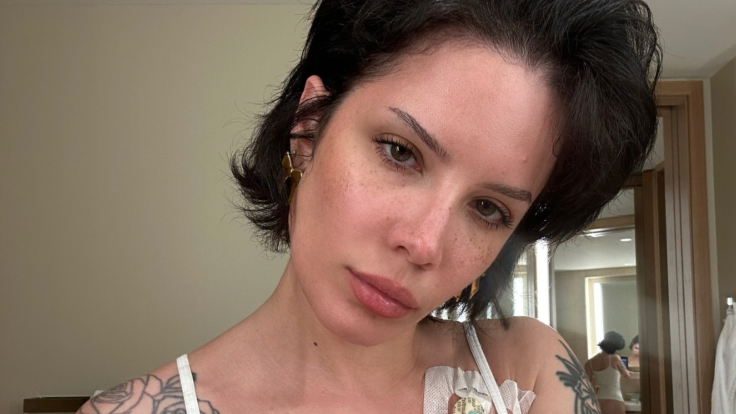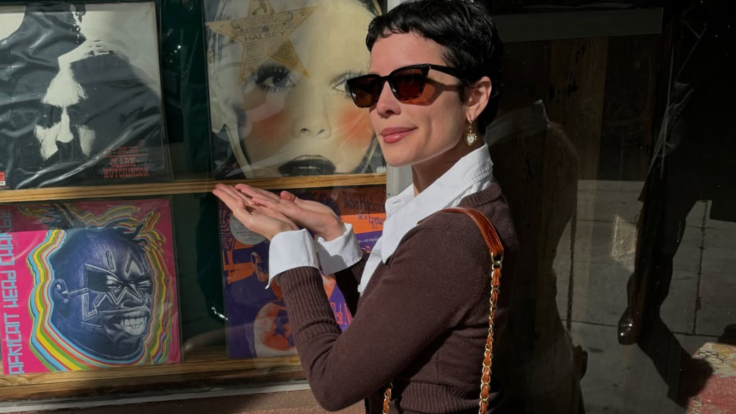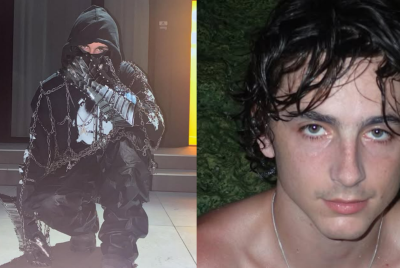'Why Isn't She Doing Taylor Swift Numbers?' Halsey Explains Why She Can't Make a New Album
Pop star Halsey says label won't let her follow 'The Great Impersonator' with another album, as past successes cast a long shadow

Halsey has revealed the frustrating truth: her record label is stopping her from producing a new album, even though she delivered what most artists would call solid success.
In an Apple Music interview with Zane Lowe broadcast on Thursday, 18 Sept 2025, Halsey claimed she is currently 'not allowed' to work on a new album. The cause, she says, is that her latest record, The Great Impersonator, released in October 2024, didn't meet the commercial benchmarks set by her former work.
Here's how she explains the situation and what it illustrates about expectations, success and the modern music business.
Commercial Pressure After 'Manic'
Halsey's standard for comparison is the 2020 album Manic, which included a No. 1 hit ('Without Me') and achieved multi-platinum status.
She said The Great Impersonator, although debuting at No. 2 on the US Billboard 200, selling about £80,000-£90,000 (circa $100,000) in its first week, was deemed a failure 'in the context of the kind of success I've had previously.'
Notably, she contended the tour behind that album was her career's highest-selling. But despite those achievements, the record label apparently expects her to replicate or exceed the numbers of Manic, which is a much higher bar.
The comparison to Taylor Swift looms heavily in Halsey's comments, with industry insiders often measuring success against Swift's record-breaking releases. Swift's The Tortured Poets Department (2024) sold over 1.9 million units in its first week in the US alone, an astronomical figure in the streaming era.
By contrast, Halsey's The Great Impersonator opened with around 100,000 units worldwide, a figure most artists would celebrate but which labels see as modest next to Swift's dominance. As Halsey pointed out, such benchmarks create unrealistic expectations: not every artist can, or should, be held to the same commercial standard, especially when creative priorities and fan demographics differ.

The Label Says 'Not Allowed'
When Lowe asked what was stopping Halsey from making another album, she replied: 'I can't make an album right now... I'm not allowed to. It's the reality.'
She emphasised that it is not a lack of desire nor creativity, but a contractual and commercial barrier imposed by her label.
@jessicagolich Woooooooooow. This is so messed up. We stand with @Halsey 🩷🩷 #halsey #halseyrecordlabel #popculture
♬ Very Sad - Enchan
She clarified The Great Impersonator didn't perform 'the way they thought it was going to'. Yet, she pushed back: 100,000 units first week is 'a pretty big first week, especially for an artist who hasn't had a hit in a long time'.
The Cost of Expectations
For Halsey, the issue is not only commercial but deeply personal. The Great Impersonator was made amid serious health struggles: diagnoses of lupus and a rare T-cell lymphoproliferative disorder; the album was conceived partially during recovery.
Halsey described the album as confessional, involving identity, authenticity and vulnerability. She also expressed that being compared to her past meteoric success is 'the hardest part of having been a pop star once... because I'm not one anymore'.
That comparison, she suggests, is relentless, and insufficiently accommodating of evolving artistry or changing market conditions.
The music industry in the 2020s has shifted in many ways: streaming dominates, physical sales have plummeted, marketing via platforms like TikTok and social media has heightened, and the benchmarks of success have shifted.

What once was a 'normal' or 'good' first-week sale is no longer viewed the same way when compared to previous successes. Halsey's situation stresses that artists who once hit peak commercial numbers may find the same level of output judged harshly under new expectations.
What This Says About Artistic Freedom
Halsey's case puts on display a tension many artists face: expectations vs creative expression; commercial viability vs personal truth. She is pushing back on being boxed in by what has worked before.
She has made clear that though The Great Impersonator may not have met certain commercial projections, it is a success in her eyes and in the eyes of her fans. But the label's requirement, she suggests, demands numbers that may not align with her artistic goals.
This is likely not just about Halsey: her situation reflects broader industry pressures where albums are often treated like single releases, evaluated on their opening week or viral moment rather than sustained cultural or artistic impact.
In the end, Halsey remains in creative limbo, not for lack of talent or willingness, but because the industry still holds her to past numbers she may never repeat, and is not being allowed to move past them.
© Copyright IBTimes 2025. All rights reserved.




















